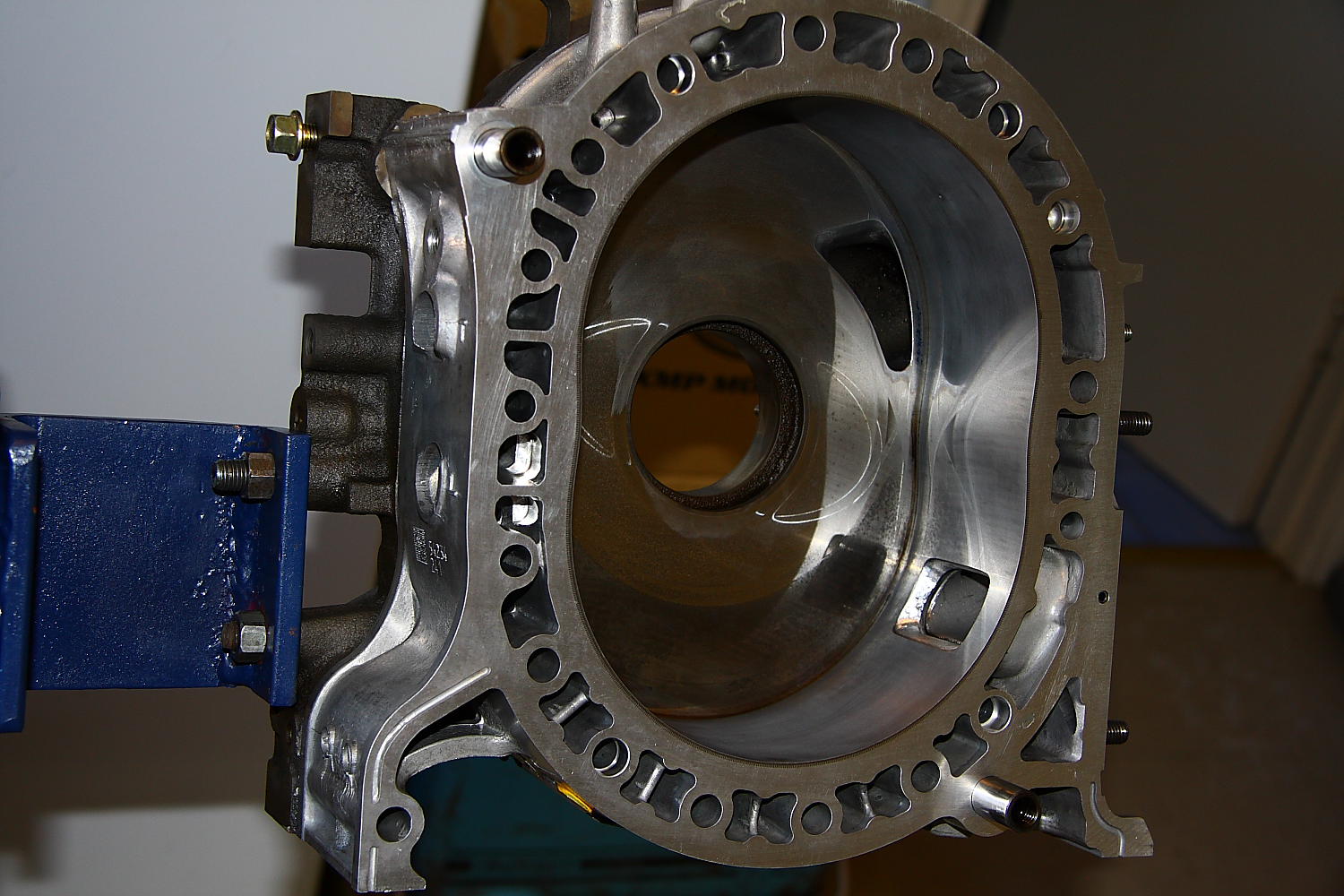So I wanted to start an Interesting thread.
With a plethora of power and rwhp claims n shit abound I had a fucking brilliant idea and that is the standardize the out put down to N/A terms for a few common engines and many people could apply it to their own? and build a up a data base here.
So here is how it follows.
1 atmosphere roughly = 1 bar absolute, so whatever your boost pressure is (psi, bar, kg/cm, horse penis forskins!) convert it to absolute bar (ambient + your gauge boost pressure) then divide your ENGINE POWER by this. I'll illustrate by a few examples of mine.
When you go through and work out how much power your engine set up makes N/A then it is easy to work out how much boost you need to make some big power, fit the right turbo and cooler to keep charge temp under control and other mapping basics this is what you theoretically will get......
eg: ~250bhp 13B N/A on 43psi boost (what will it make?)
(43/14.5) = 2.965
2.965 + 1 = 3.965 absolute pressure
250 x 3.965 = 991.4 bhp!
NOTE: F1 mid 80's 5.6bar boost absolute (66.7psi gauge boost) would yield ~1400bhp interestingly EXACTLY what a 1.5lt stock block BMW road car engine did @ 10200rpm  Some 13B engine combos worked out for base power N/A (post up yours) you will need to estimate your engine power!
Some 13B engine combos worked out for base power N/A (post up yours) you will need to estimate your engine power! NOTE: dynapack chassis dyno users I have used a figure of 1.15 multiplier on FD platform and this is commonly accepted across the traps who use this type to guess the engine power, its pretty close! >
http://translate.google.com.au/trans...6prmd%3Divnsfd
13B-REW (stock standard)
T04Z 1.32 A/R & stock twin turbo's tested (on exact same set up)
3.5" exhaust dual muffler (quiet)
9.0:1 compression ratio 45 deg C charge temp (for both set ups) 29psi v's 13psi *water sprayed IC and water injection internally on single turbo*
365bhp @ 6700rpm engine power @ 13psi boost twins, same exhaust, IC, intake etc SP specification.
565bhp @ 6700rpm engine power @ 29psi boost Single Turbo, water spray IC, and RR water injection
(29/14.5) = 2.0
2.0 + 1 = 3.0 bar absolute pressure
565bhp / 3.0 = 188bhp
So a stock block 100% stock ported 13B-REW will give 188bhp @ the engine N/A *2.0bar boost*
So a stock block 100% stock ported 13B-REW will give 192bhp @ the engine N/A *0.9bar boost*
FAMSPEED 13B-REW
The new high-flow turbine test (More FAMSPEED RESULTS)
confirming my testing on stock ported 13B-REW
ブースト:1.1k Boost: 1.1k トルク:45.2kg/5907rpm 馬力:408.0ps/6692rpm 408.0ps/6692rpm: hp 45.2kg/5907rpm: torque
↓ 10.6%アップ ↓ 10.6% up
ブースト:1.3k Boost: 1.3k トルク:51.1kg/5386rpm 馬力:451.3ps/6697rpm 451.3ps/6697rpm: hp 51.1kg/5386rpm: torque
↓ 4.3%アップ(ブーストタレの為) ↓ (for boost sagging) up 4.3%
ブースト:1.5k Boost: 1.5k トルク:53.5kg/5689rpm 馬力:470.8ps/6664rpm 470.8ps/6664rpm: hp 53.5kg/5689rpm: torque
^^^FAMspeed RX7 13B-REW "tickled up" stock port ports just polished no real timing change "modified twins"
various power levels listed at 6700rpm maximum peak (TCF 1.15) high flow twins
Works out to 194bhp *1.1bar boost* 188bhp *1.5bar boost* @ engine N/A
13B-S5 (mild street ported)
actual engine dyno tested @ 7500rpm
3" exhaust 1 muffler
and fitted with T66 1.00 A/R
9.0:1 compression ratio 1.7bar boost pressure with 2.1 bar exhaust manifold pressure
580.1bhp @ 7500rpm engine power @ ~25psi boost RR water injection
(1.7 bar) = 1.7bar
1.7 + 1 = 2.7 bar absolute pressure
580.1 / 2.7 = 215bhp
So a mild street port 13B-S5 block makes 215bhp @ the engine N/A
13B-S5 or 13B-COSMO (RR street ported)
both deliver peak power @ 7600rpm
3" exhaust 1 muffler
and either fitted with T04 1.32 A/R or T51 deliver following
9.0:1 compression ratio 45 deg C charge temp
549.7bhp @ 7600rpm engine power @ 18.3psi boost S5 variant with T04 RR water injection
633.5bhp @ 7600rpm engine power @ 24psi boost COSMO variant with T51 RR water injection
S5 worked out below
(18.3/14.5) = 1.262
1.24 + 1 = 2.262 bar absolute pressure
550 / 2.262 = 243bhp
So a RR street port 13B-Cosmo or S5 block makes 240bhp to 243bhp @ the engine N/A
SCOOT RX7 "top speed car" 13B-REW Peripheral port "cross port motor"
710bhp on 29psi boost @ 7100rpm (dyno print out on coast down converts to estimated engine power *can provide data*)
HKS T51KAI 1.0A/R
Works out to 236bhp @ engine N/A
and on ~1.48bar boost (610bhp)
Works out to 245bhp @ engine N/A
PANspeed RX7 13B-REW Bridge port
578.5bhp on 18.5psi boost (~1.30 bar) @ 7800rpm (TCF 1.00 shown > 503.1rearhubhp)
HKS T04Z 1.0A/R
Works out to 251bhp @ engine N/A
FAMspeed RX7 13B-REW Peripheral port "cross port motor"
646bhp on 21psi boost (1.45 bar) @ 6700rpm (TCF 1.15 so it actually made 561.7rearhubhp)
HKS T51SPL 1.0A/R
Works out to 258bhp @ engine N/A
Racing Beat 13B circa 1986 (Twin Turbo Bridge Port)
530bhp on 15psi boost @ 8000rpm
3" x 2 open pipes FUCK OFF EAR BLEEDING LOUD!
5 deg C charge temp ICE/Alcohol cooler offset low engine compression ratio
(15/14.7) = 1.03
1.03 + 1 = 2.03bar absolute pressure
530 / 2.03 = 261bhp
Racing Beat bridge port 7.5:1 comp engine made 261bhp @ engine N/A
FULL Bridge Port 13B-Cosmo N/A style primary and secondary
3.5" exhaust 1 muffler *loud*
660bhp on 21psi boost @ 8500rpm 9.0:1 compression ratio RR water injection
Garrett T51 1.22A/R
(21/14.50) = 1.448
1 + 1.448 = 2.448 absolute pressure
660/2.448 = 269bhp
Works out to 269bhp @ engine N/A
Same engine fitted with 7.8:1 compression rotors gave below reading
690bhp on 24psi boost RR water injection
Works out to 260bhp @ engine N/A
RR street port V's stock ports





















 190 odd bhp level to 240bhp~!
190 odd bhp level to 240bhp~!

 Linear Mode
Linear Mode

